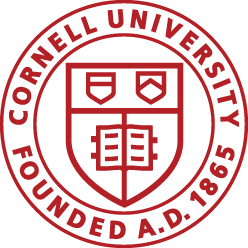FMI v. Argus Leader Supreme Court Amicus Brief
Cornell Law School’s First Amendment Clinic Leads Amicus Brief Filing to Preserve FOIA’s Definitive Test for Disclosure
Cornell Law School’s First Amendment Clinic filed an amicus brief in the U.S. Supreme Court yesterday on behalf of a coalition of FOIA and First Amendment scholars in support of preserving FOIA’s definitive test for disclosure for information alleged to be “confidential commercial information.” The petitioner, Food Marketing Institute, has suggested a drastic departure from the current understanding of this provision of FOIA in clear contravention of Congress’s endorsement of the prevailing standard.
At stake is the public’s right to valuable information pertaining to public health, the environment, and the government regulation of industry as a broader matter, and beyond this case, the clear congressional mandate in favor of transparency.
“FOIA has been the subject of active interest from Congress,” states the brief. “Through a series of twelve overhauls, Congress has made plain that it has an unwavering and increasing commitment to transparency, and an unhesitating willingness to cast aside Executive or judicial actions that set back this purpose.” It concludes that the “Court should affirm the judgment of the Eighth Circuit Court of Appeals, dismiss the writ as improvidently granted, or clarify that its opinion does not reach the 2016 FOIA Improvements Act.”
Cortelyou Kenney, Assistant Director of Cornell Law School’s First Amendment Clinic, who spearheaded the filing along with Professor Michael Dorf, said, “Congress is keenly aware of the National Parks test and has repeatedly rejected calls to alter or replace it since the test was first conceived in 1974. This Court’s sitting Justices have expressed the need to defer to Congress in the arena of FOIA, and the Court should not change course now.”
The recently launched First Amendment Clinic enables Cornell Law school students to work on real cases involving free speech and freedom of the press. Through its caseload and curriculum, the clinic trains diverse, young lawyers in the skills needed to become effective advocates in the field.
Information on this page is provided for archival purposes. All newly created PDFs on this website are accessible. For an accommodation for PDFs on this page, please contact law-web-ada@cornell.edu.
